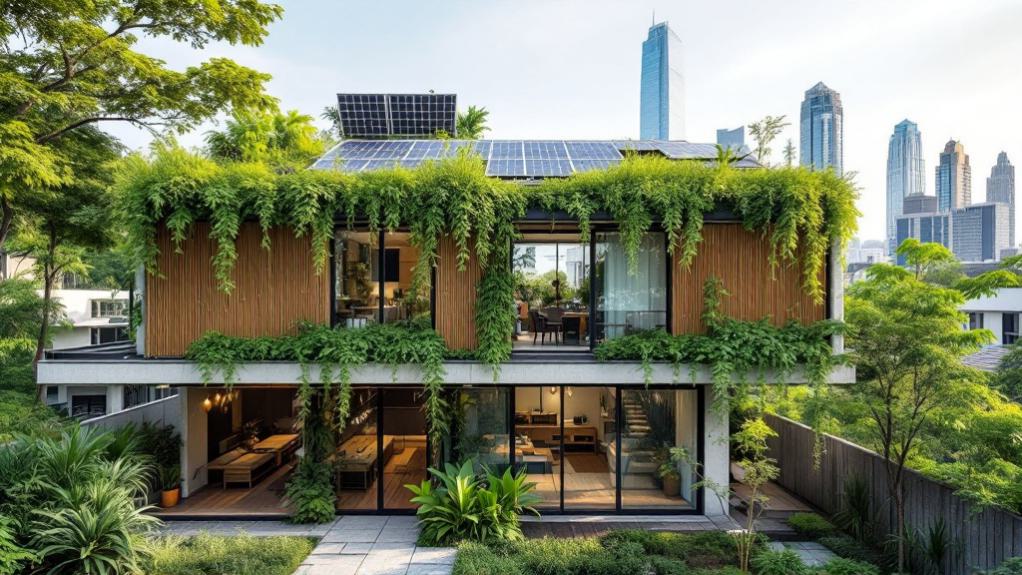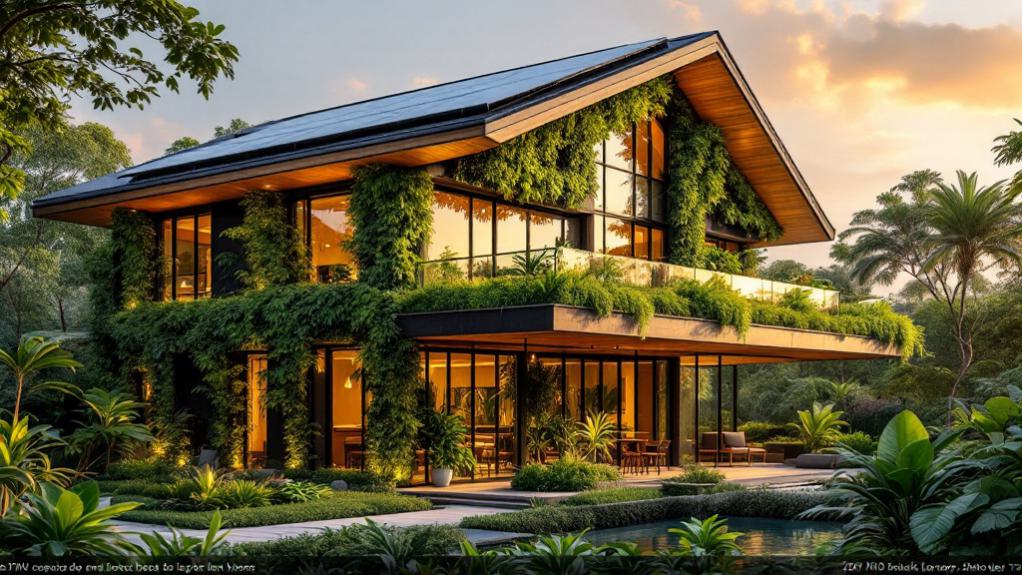Singapore’s real estate sector has embraced sustainability through extensive green initiatives, with certified structures reducing energy consumption by 30% compared to conventional buildings. The Singapore Green Plan 2030 targets 80% green building adoption, while developers increasingly incorporate solar panels, water-efficient fixtures, and waste management systems in new residential projects. With 82% of Singaporeans willing to pay premiums for eco-friendly homes, biophilic design elements and proximity to public transport have become decisive factors in property valorization and urban planning strategies.

As Singapore intensifies its efforts to combat climate change and reduce its carbon footprint, the nation’s residential property sector has undergone a remarkable transformation toward sustainability over the past decade. Since the introduction of the Green Mark Certification scheme in 2005, Singapore has established itself as a regional leader in green building practices, with certified structures demonstrating an average energy consumption reduction of 30% compared to conventional buildings.
The Singapore Green Plan 2030 has set an ambitious target of achieving 80% green buildings by 2030, compelling developers to incorporate sustainable features into new residential projects. Many developers now seek SGBP certification for building materials to gain points under the Green Mark Scheme, enhancing their sustainability credentials.
Energy efficiency remains a cornerstone of sustainable housing in Singapore, with solar panel implementation expanding toward the national target of 2 GWp capacity by 2030. Modern residential developments increasingly feature smart energy management systems, regenerative lifts that convert mechanical energy into electricity, and sensor-based lighting controls that considerably reduce consumption.
Singapore’s stellar energy innovations – from solar capacity to regenerative lifts – are reshaping sustainable living nationwide.
Water conservation technologies have become standard installations, with rainwater harvesting systems and water-efficient fixtures now mandatory in new constructions, complementing the national NEWater program that currently satisfies 40% of Singapore’s water requirements.
Waste management infrastructure has evolved notably, evidenced by the integration of centralized recycling chutes in new Housing Development Board (HDB) projects and pneumatic waste conveyance systems in select residential estates. The implementation of the nationwide e-waste recycling program in 2021 further supports the Zero Waste Masterplan‘s objective to reduce landfill waste by 30%.
The incorporation of biophilic design elements, including vertical gardens and green roofs, has transformed residential aesthetics while enhancing environmental performance. Property developers increasingly market sustainability as a key differentiator, responding to consumer demand as 82% of Singaporeans express willingness to pay premium prices for eco-friendly homes. This aligns with investor preferences in the commercial sector, where green-certified properties are rapidly becoming the standard expectation rather than a distinguishing feature.
Transportation considerations have also influenced residential planning, with car-lite neighborhoods, mandatory bicycle parking facilities, and proximity to public transport becoming significant factors in homebuyers’ decision-making processes, reflecting a thorough approach to sustainable urban living. The Chuan Park stands out as an exemplary model of innovative green development that combines transportation accessibility with cutting-edge sustainable features.
Frequently Asked Questions
What Are the Costs of Sustainable Renovations in Singapore?
Sustainable renovations in Singapore typically cost 10-30% more than standard renovations, with specific features adding variable expenses: energy-efficient appliances ($3,000-$5,000), solar panel installation ($15,000-$30,000), green building materials (15-25% premium), and smart home technology integration ($5,000-$15,000).
These investments are partially offset by government incentives, including BCA Green Mark Scheme subsidies (up to $600,000) and NEA’s Energy Efficiency Fund (up to 50% funding for qualifying technologies).
Which Singapore Neighborhoods Have the Most Green Homes?
Singapore’s greenest neighborhoods include Tengah, marketed as the first “Forest Town” with 42,000 eco-integrated homes, and Punggol, the pioneering eco-town featuring Waterway Residences with green roofs and solar panels.
Yuhua stands out as the first existing estate transformed into a “Green Neighbourhood,” achieving 20% energy reduction post-upgrades, while Tampines, an early Eco-Town adopter, offers developments like GreenWeave with vertical gardens and extensive rainwater harvesting systems.
Are Sustainable Home Certifications Mandatory for New Developments?
While not universally mandatory, sustainable home certifications have significant regulatory requirements in Singapore’s development landscape.
Green Mark certification is compulsory for new buildings exceeding 5,000 square meters since 2008, with government land sale sites requiring minimum Green Mark Gold Plus ratings.
Additionally, energy efficiency standards are mandatory for new and existing buildings undergoing major retrofits, with building owners obligated to conduct energy audits and improve efficiency by 2030.
How Do Green Homes Affect Property Insurance Premiums?
Green homes typically benefit from reduced insurance premiums, with discounts of up to 5% available for certified sustainable properties.
Insurers recognize that energy-efficient features, sustainable materials, and smart home systems reduce claim risks. Companies like OCBC offer specific green discounts, while others provide enhanced coverage for eco-friendly rebuilding and sustainable technologies such as solar panels.
The industry’s growing data collection on green building performance continues to inform favorable pricing models for environmentally responsible properties.
Can HDB Flats Be Retrofitted With Sustainable Features?
HDB flats can indeed be retrofitted with sustainable features through Singapore’s Green Towns Programme, which implements solar panels, smart LED lighting, and cool coatings on existing buildings.
The ten-year initiative, launched in 2020, aims to reduce energy consumption by 15% by 2030 across all HDB towns. Currently, 2,700 out of 8,400 committed HDB blocks have had solar panels installed, while other retrofits include energy monitoring systems and automated waste management infrastructure.





